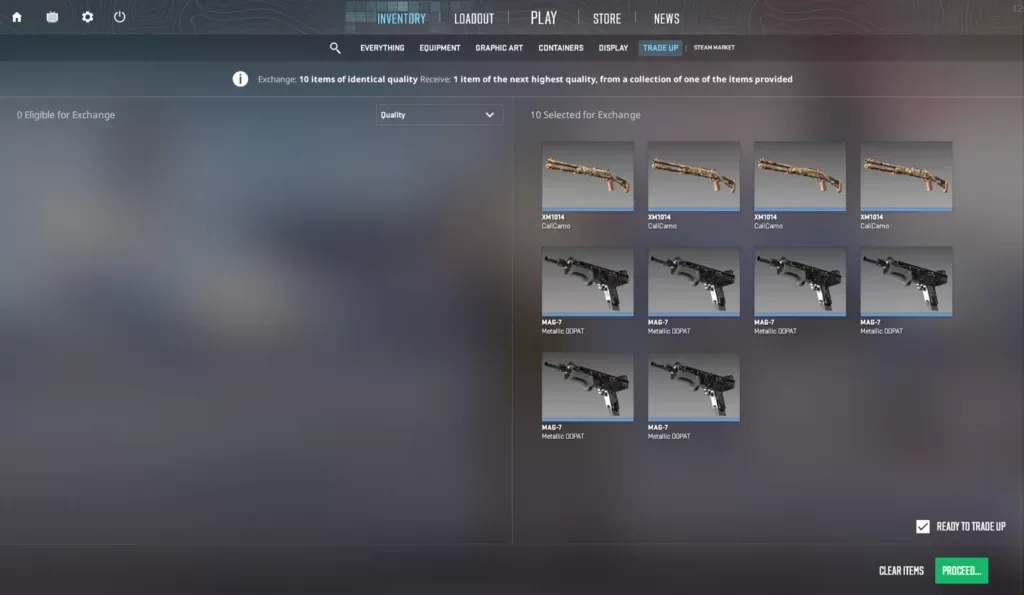Southeast Insights
Your go-to source for news and information from the vibrant heart of Shenyang.
The Sneaky Science Behind CS2 Trading Mechanics
Unlock the secrets of CS2 trading mechanics! Discover the sneaky strategies and psychology that can boost your profits in the game.
Exploring the Algorithms: How CS2 Trading Mechanics Work
Counter-Strike 2 (CS2) introduces a complex trading mechanic that relies heavily on advanced algorithms to ensure fair exchanges between players. At its core, the trading system is designed to evaluate the scarcity, demand, and overall market value of in-game items. The algorithm examines various factors, including the item's rarity, current market trends, and user engagement, to determine its worth at any given moment. This dynamic approach to trading not only empowers players to make informed decisions but also fosters a vibrant economy within the game, as players can leverage these insights to maximize their trades.
Moreover, the CS2 trading mechanics utilize a reputation system that rewards players for engaging in fair trade practices. When players engage in multiple successful trades, their reputation score increases, which can grant them access to exclusive items and trading opportunities. This system is further enhanced by player feedback mechanisms, where users can rate their trading experiences. Such features encourage transparency and build trust among the community, ensuring that the trading environment remains competitive yet fair. As players navigate through the complexities of CS2's trading algorithms, they contribute to an ever-evolving marketplace that reflects the interests and behaviors of its participants.

Counter-Strike is a highly popular tactical first-person shooter game where teams of terrorists and counter-terrorists compete against each other in various objective-based game modes. Players can enhance their gaming experience by using a csgoroll promo code to gain access to exclusive bonuses and features. The game has a strong competitive scene and a dedicated player base, making it a staple in the eSports community.
The Psychology of Trading: What Drives Value in CS2 Items?
The psychology of trading within the world of CS2 items is a fascinating subject that intertwines emotional and cognitive factors. Many traders often rely on market trends and item rarity to gauge the value of their in-game possessions. Understanding how these psychological elements shape trading decisions can provide valuable insights into what drives value. Factors such as supply and demand dynamics, attachment to certain items, and the influence of social circles play significant roles in determining how much a player is willing to invest in an item. When players see their friends or prominent community figures trading specific skins or items, it can create a bandwagon effect, often inflating prices and altering perceived value.
Another critical aspect of the psychology of trading is the concept of loss aversion, where players might irrationally cling to items that have lost value, hoping the market will rebound. This tendency can lead to poor trading decisions. Additionally, the availability of trading platforms and online forums allows players to engage with each other, influencing market perceptions collectively. Lists or forums like Reddit threads or Discord channels can be hotbeds for speculation, where traders share insights and predictions that significantly impact item valuation. Understanding these psychological motivations can significantly enhance a trader's strategies in navigating the complex landscape of CS2 item trading.
Is CS2 Trading Fair? Analyzing the Odds and Strategies Behind the Game
When it comes to CS2 trading, players often question whether the mechanics of the game ensure a fair experience. Analyzing the odds inherent in trading systems reveals that the outcomes depend on a variety of factors, including market demand, item rarity, and player behavior. With the rise of community-driven marketplaces, it becomes crucial to understand that while the game itself is designed to maintain equilibrium, fluctuations can occur based on external influences. Consequently, players must remain vigilant and informed to navigate this landscape successfully.
Implementing effective strategies can significantly enhance the fairness of trading in CS2. One approach is to educate yourself about the market trends, knowing which items hold their value and which can cause losses. Additionally, employing a risk management strategy—such as setting a limit on how much you're willing to invest—can help mitigate potential setbacks. Remember, the essence of fair trading lies not only in understanding the game's mechanics but also in being proactive about your trading strategies and decisions.